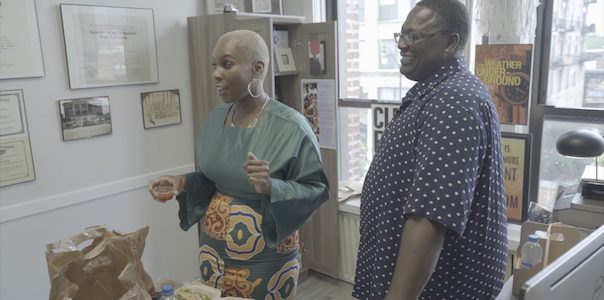
ReelBob: ‘The Third Strike’ ★★★
By Bob Bloom
The federal three-strike law, implemented in 1994, was designed as an anti-violence strategy to imprison habitual criminals — those who had been convicted of two serious crimes. Many states followed, implementing their own laws.
The federal law mandated that the punishment for third strike was a life sentence. Ideally, it was aimed at putting away the worst of the worst. Unfortunately, the law does not work as it was meant.
As the passionate documentary “The Third Strike” clearly indicates, the statute has led to hundreds of inequalities in the justice system — specifically the imprisonment of minority males convicted of nonviolent drug offenses such as possession or selling small amounts of marijuana or cocaine.
In Chicago, a lawyer with the fitting name of MiAngel Cody — and a sense of equal justice to complement her name — founded The Decarceration Collective, a movement to have the harsh sentences of many nonviolent offenders commuted.
As Cody and others working with the Collective, including cofounder Amanda Bashi, Bella Bahhs, founder of The Sister Survivor Network, and LaSheda Brooks, whose father was sentenced at 17 to life imprisonment under the law, explain, the focus of the three-strike program is askew.
Instead of centering on killers, burglars or high-level drug dealers, prosecutors use the act to imprison repeat offenders who are very low on the criminal food chain. These are mostly young and poor black men arrested for possession.
“The Third Strike,” directed by Nicole Jones, is a heartbreaking experience. The ripples of those incarcerated for life for minor offenses impacts their families, especially the children who, like Brooks, grow up without a father in the home.
The Decarceration Collective is critical of the justice system’s emphasis on funding for prosecution and incarceration.
Jones’ film provide many examples of young men who, because of the cookie-cutter nature of the law, are wasting away in prison without the possibility of parole, while more violent offenders, including murderers and robbers, are released back into society.
The movie also highlights some of the program’s success stories. And as you see a few of these men — many much older — reunited with their families, you feel uplifted. But a sense of indignation also eats away at you.
In the back of your mind, you constantly ask, why? Justice is supposed to be fair and impartial. But three strike laws unbalance the scales, which tip away from those whose circumstances are not as fortunate as ours.
A glimmer of hope does shine through “The Third Strike.” First is a look at the passage of the First Step Act, which includes reforms to the federal prison system and has led to the release of many nonviolent offenders.
We see one of those released men, Edward Douglas, being reunited with his family and later meeting with Sen. Cory Booker (D-N.J.), one of the major supporters of the legislation.
Douglas’ face radiates joy and his emotional response to his release cannot help but make you shed a tear or two of joy.
So far, 33 people have been released from prison through the work of the Decarceration Collective. While that is a positive step, it is tempered by the knowledge that so many, many others still are wasting away behind bars.
I am a founding member of the Indiana Film Journalists Association. My reviews appear at ReelBob (reelbob.com) and Rottentomatoes (www.rottentomatoes.com). I also review Blu-rays and DVDs. I can be reached by email at bobbloomjc@gmail.com or on Twitter @ReelBobBloom. Links to my reviews can be found on Facebook, Twitter and LinkedIn.
THE THIRD STRIKE
3 stars out of 4
Not rated
